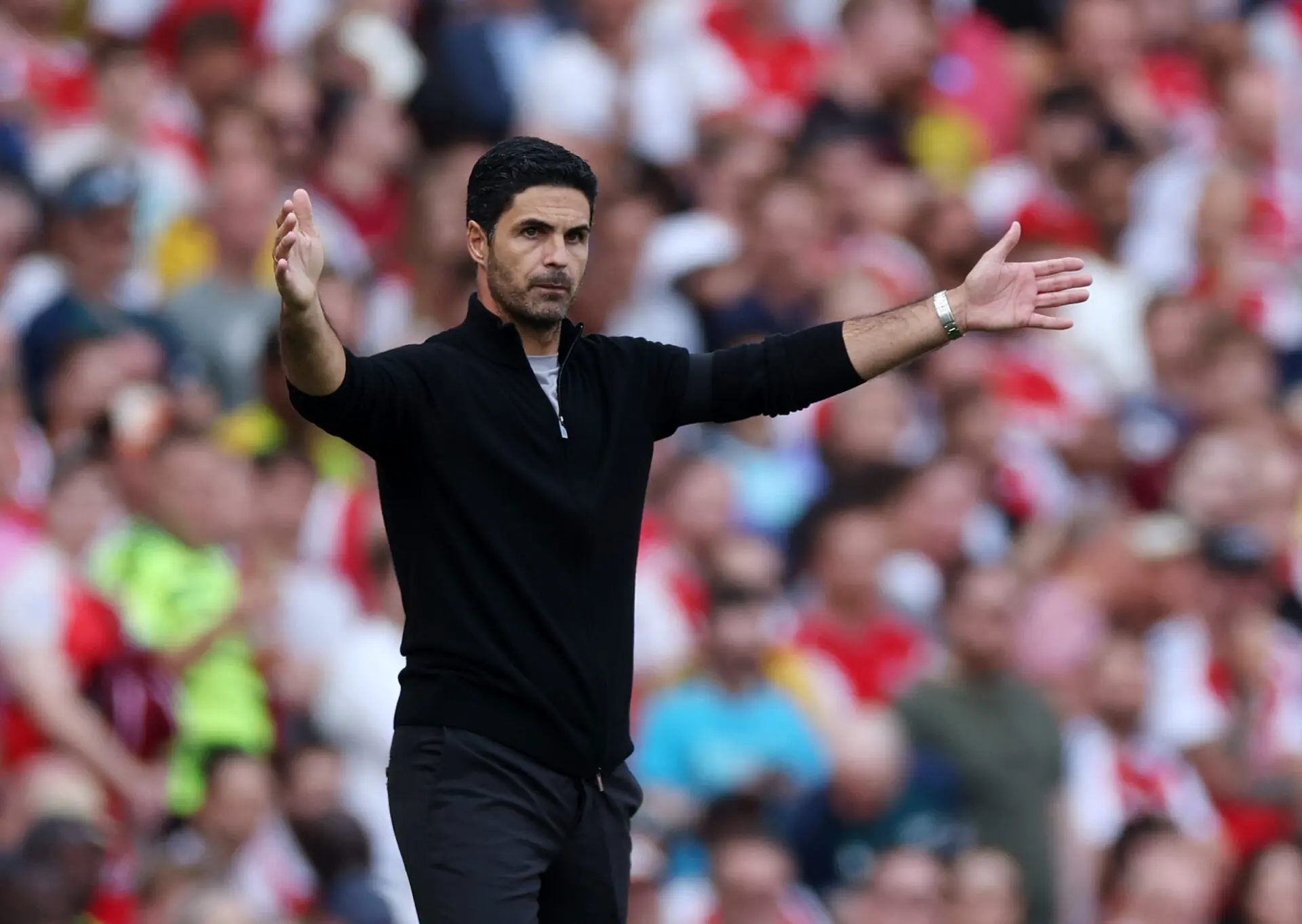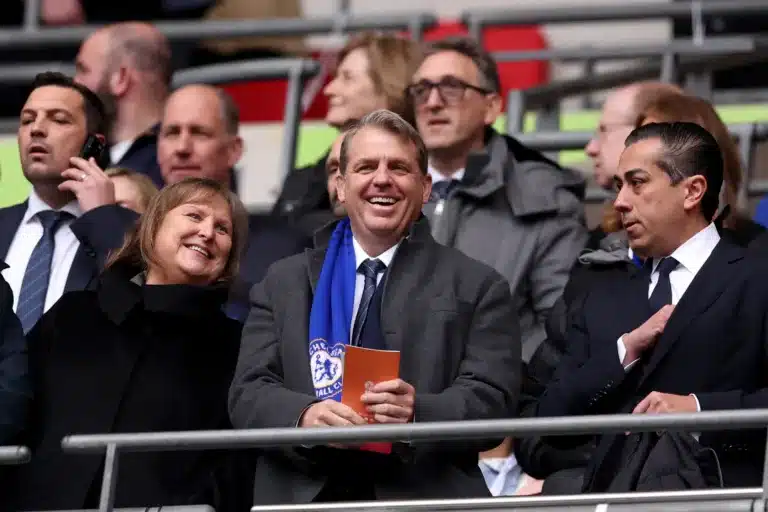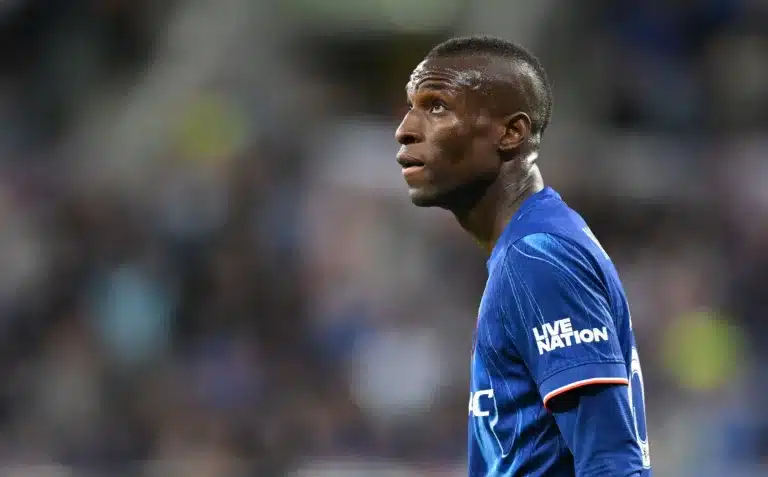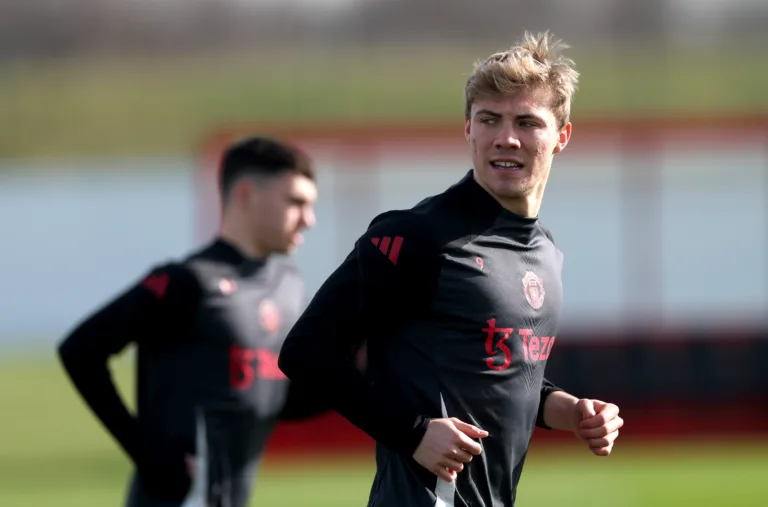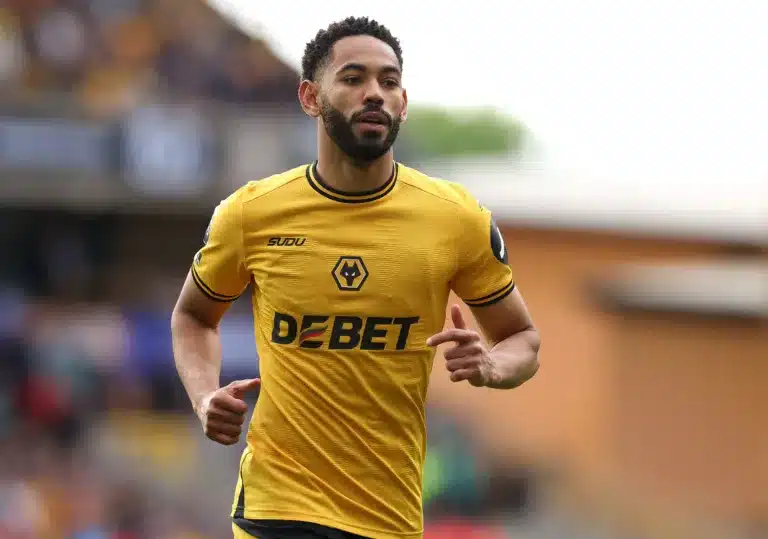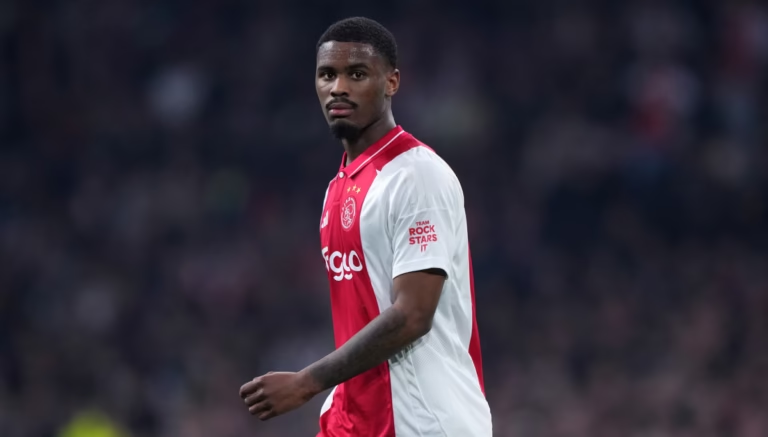Mikel Arteta – The Unpredictable Pursuit Of Unpredictable Value
There’s an ongoing debate in football—a wrangle over “the soul of football” itself—it may well be blatant overstatement this one, probably, especially when the “Positionists” think it’s pointless talk; some call it a fallacy, in fact. And even for the most flappable of “tacticos,” football may have fallen off, but pace and power remain far more important than aesthetics; Juego de Posicion moves the needle, not the perverse freedom of “relationism.”
Now, before this writer gets branded as one of those Twitter tacticos who “likes to use high flown over embellished language to make themselves look better than anyone”—a blatant overstatement as well, by the way—I’ll try to explain.
The Explanation
You see, positionists think football should be played in zones—”don’t”move, the ball will come,” and when it comes, pass, pass, pass—in what usually becomes a spellbinding carousel—not always to create chances by intuition, but to also wear the opponent down and prevent them from attacking—while trying to create “numerical superiority” all over the pitch. And when you dare ask, “What is the point of football if not to try to score at every opportunity?” they coyly come up with “the faster the ball goes, the faster it comes” or some sort of jargon like that.
On the other hand, relationists like to preach: give your “best players” the most freedom, let them take risks, move around wherever they want, like kids in the park, and let them score goals that will get you out of your seat. They like the “ballers.” The ‘edge of your seat’ kind of ballers, for that matter. They’ll probably have Ozil over KDB, maybe Hazard over Salah, to put it minimally. Hell, they might look you straight in the eye and say Foden is a better right winger than Saka just because the former looks easier on the eye. And when you dare ask, “Well, what does all that ‘give the ballers the attacking freedom’ do to your Defence?” they immediately come up with, “football is about entertainment” or some made up quote like that.
The reality of these two opinions is that they’re opinions; both may be right or wrong, but maybe only when you contextualise when, where, and how they are used, of course. The even bigger reality is that coaches who are most often branded as heavy disciples of either school of thought as if they were political ideologies don’t even necessarily stick religiously to the principles that define the two individual schools of thought. No need to mention names. But in football, as it is in life’s many endeavours, only one thing really matters, and that is the maximisation of value. And in the modern game, value won’t come from complete attacking freedom or a complete lack of freedom in attack.
While the compartmentalization of these two philosophies is right in itself, football isn’t absolute, and no manager sticks to one philosophy while ignoring principles of the other philosophy. Said I won’t mention names, but you can ask Pep or Ancelloti, and if you think both are black or white, you need to look more closely.
This article looks to look more closely at none other than Mikel Arteta anyway, the guy who was raised in La Masia, played under Moyes, retired under Wenger, and became a coach under Pep in the Premier League.
Mikel Arteta
Arteta has a defining footballing philosophy, yes, but arguably more so than anyone he has learned or played under, he combines a host of different principles, some would say foreign or completely opposite to his main footballing philosophy—all in the grand scheme of attaining an advantage over the opponent—winning games.
The Arsenal manager has had the privilege of playing under Moyes’s Everton, who thrived on being extremely direct in attack on a resolute defensive foundation. He started his football career in La Masia, where football is thought of in rondos and where the pause and pass are probably the most mentioned words. It’s probably why Wenger had him anchor his midfield for five years, because well, Wenger played Wengerball, a brand of football long considered by many as an offshoot of Barcelona. Again, it is probably why Pep Guardiola, undoubtedly the greatest manager of all time and a La Masia graduate, called on Arteta to aid his adaptation to English football when he got the Man City job in 2016.
Arteta’s experiences (and they are even more than the aforementioned) come together to define him and his football He is an example that opposing philosophies can be tapped into to create a competitive team. Here’s why:
Arteta’s Arsenal have seen tremendous progress in the last few seasons, judging from where the club has come from in the last few years. The Arteta Arsenal of 22/23 that surprised everyone to a title challenge played free flowing football, reminiscent of some of Arsene Wenger’s best teams and more akin to the freedom of expression relationists preach about. For context, Arsenal were the only club to have 5 players create 20+ chances by the first half of that season. A first 19-game run that saw them pick 50 points. The 5 players were all in the last line of attack, who combined and interchanged brilliantly to play football more pleasing on the eye than even Pep Guardiola’s Man City that season.
Then again, Arteta’s 23/24 team were more resolute, boosting arguably Europe’s best defence, something David Moyes would have been proud of, something you don’t also normally associate with teams who want to play the expansive football relationists talk about. (They didn’t play expansive football for the most part of that season anyway.) They conceded the least number of goals in the Premier League that season. And yet, in both seasons Pmost people would deem largely contrasting from a tactical point of view, Arteta had the team playing under the foundations of the JDP philosophy.
The other side of the story tells you that for all their free flowing football, Arsenal’s 22/23 team conceded 43 goals. And when their much improved defence conceded 29 goals in 23/24, they were 6th in open chances that season in the end, a decline from their 4th in open play chances the previous season. Also, here is perhaps the fact the cynics will like to highlight: Arsenal did not win the Premier League in both seasons. Welp.
Maximum Value
But the key thing, and the point this article is trying to highlight, is that Arteta tried in those two seasons to extract the maximum value from his squad towards one goal: improving. Depending on how you like your football (positionist or relationist, JDP or fluid attacking football), you may agree or disagree with how Arsenal played in 22/23 and 23/24, precisely in terms of style. Arteta, by the way, would argue he had to adapt and improve. Perhaps scoring 91 goals (most in the club’s history) and conceding the least number of goals (29) in the Premier League in 23/24 was a good sign of improvement, even if the football was largely more dull and even if they didn’t win the league again.
Of course they didn’t win the Premier League, but the Arsenal of those two seasons have largely become a model club for teams trying to catch Man City. It is also fine to admit that the Pep Guardiola team that has twice denied Arsenal a first PL title in over 20 years have won the league four times on a bounce, having achieved a treble in one of those seasons as well. They are quite simply one of the greatest teams the Premier League has ever seen. And so Arsenal’s 22/23 and 23/24 seasons are justified progress when you look at City and where Arsenal themselves have come from.
It is also not to say that Arteta and Arsenal should be accepting of second-place finishes while Pep and City are still in England, and that is why Arteta’s continuous pursuit of unpredictability will be key to his Arsenal team finally pipping his former boss to the title, if or when that happens.
The Pursuit Of Unpredictability
The pursuit of unpredictability points to an Arsenal that will look to still harness the foundations of positional play in buildup and in possession, yet broadly become increasingly fluid in attack beyond the rigidities of JDP while maintaining their reputation as a top defensive unit and a slower, more controlling team. Simply put, Arsenal have to now build a team that combines their attack of 22/23 with their defence of 23/24. Yet again, Arteta must be more relationist in attack and more positionist in buildup. But this time, he must look to combine it into one season. Easier said than done, of course. But beating Pep is not supposed to be easy anyway.
“We have that flexibility now and we have the capacity to rotate and accommodate players in other positions. We are going to be more unpredictable.”
Mikel Arteta says his formation and tactics are going to be more unpredictable this season (23/24).”
Thankfully, I’m not the one telling Arteta what to do here. He mentioned his own desire for unpredictability the season before, even if key injuries largely prevented that. But his own signings this summer point to this grand strategy of combining the positives of Arsenal’s two previous seasons. Mikel Merino is Europe’s best duel winner (knowing Arteta, Merino was not going to be signed if he didn’t breathe duels, by the way), and yet the Euro winner possesses the fluidity and first-time passing that saw Arsenal’s left side flourish in 22/23 with Xhaka in that role and struggle without Xhaka in 23/24. Gabriel Martinelli, who scored 15 non-penalty goals in 22/23, struggled for form in 23/24 due to the lack of fluidity and consistency on the left side. This broadly culminated in a drop in Arsenal’s chance creation numbers from open play. The Brazilian is more than likely to recapture a bit of that form with the arrival of Merino.
On the other hand, Ricardo Calafiori, Europe’s most effective carrying centre back, also doubles up as a left back and can bring a bit of the fluidity of Zinchenko’s 22/23 season while keeping the robustness of what made Tomiyasu valuable in the 23/24 run-in. The Italian who impressed at the Euros is a natural ball-playing centre back who also adds another layer of smoothness to Arsenal’s buildup without compromising the physicality and robustness of the defensive unit itself.
And finally, Arsenal’s roller coaster deadline day signing Raheem Sterling (who’s best years came during Mikel Arteta’s time as assistant manager at Man City) is a touchline winger much more suited to the width holding Martinelli understandably struggled with in 23/24, and perhaps even more importantly, Sterling effectively prevents Saka from burning out.
Set piece FC is still alive, by the way. Calafiori and Merino both stand at +6 ft. You clearly know what that means
Beyond the three new signings, Arsenal fans, as will opposition managers, would all be probably left scratching heads every week on whether Havertz will be starting at centre forward or attacking midfield, or whether Rice will be in defensive midfield or left central midfield. It’s probably nothing grand, as every other team could say the same for certain key starters. But anybody who has followed Arsenal would know these two different Havertz and Rice dynamics heavily change how the team would approach games. It is what Arteta has come to stand for: extracting value from key versatile players.
Arsenal’s 22/23 and 23/24 seasons showed two sides of the Arteta coin: versatility that dispelled certain fears that he might be too similar to Pep in approach, which would then mean a lesser likelihood that he beats his former boss to anything. Well, crucially Arteta is his own man, but the goal for this season would definitely be to become an even more complete side, a side that maximises the strengths of all key players depending on the opposition’s weaknesses, a side that seeks to pursue value in an unpredictable way by tapping into positionist and relationsist ideas.
Arteta’s new signings have all not started a game in the club’s first three games. They have gone on to pick 7/9 points against Wolves, Aston Villa and Brighton. So one can imagine that as soon as Calafiori, Merino and Sterling get properly going, Arteta’s unpredictable ideas will properly come to the fore, and then, maybe, just maybe, that first PL title in 21 years might arrive at the Emirates, or who knows, a first ever CL may be on the horizon. It’s three games in, and none of Arsenal’s new signings have started yet, so we’ll see.


